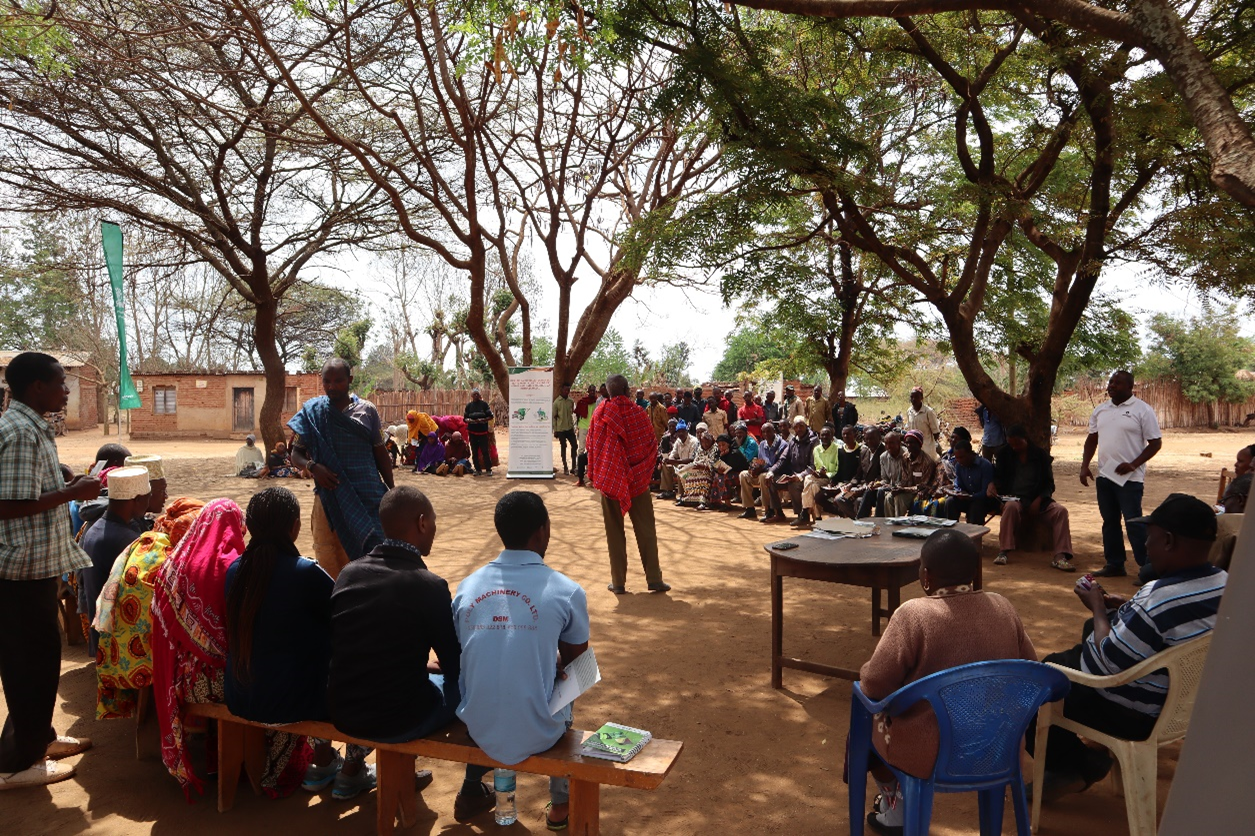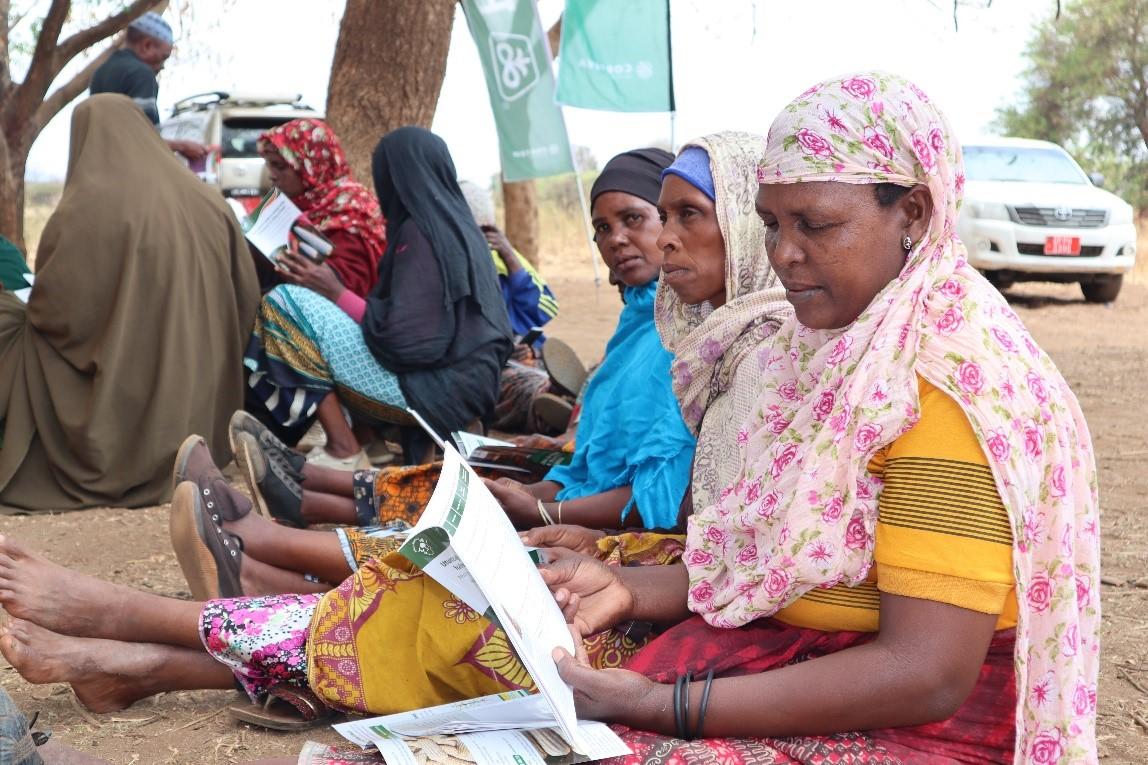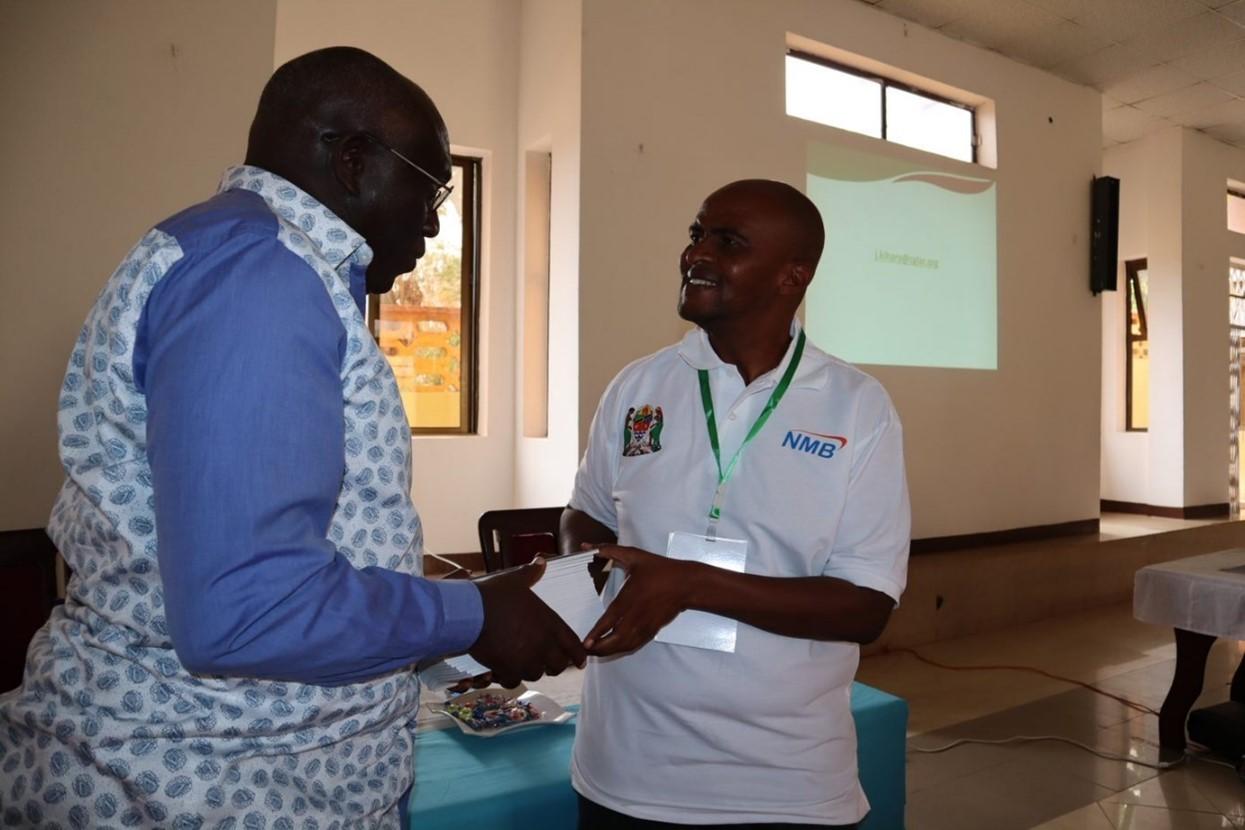From the Field Accelerating agronomic research through local partnerships: highlights of Africa RISING feedback and stakeholder meetings

By Michael Kinyua and Job Kihara
The Africa Research in Sustainable Intensification for the Next Generation (Africa RISING) is a project supported by the United States Agency for International Development (USAID) to create opportunities for smallholder farm households to provide pathways out of hunger and poverty through sustainably intensified farming systems. Farmers in Babati District of Northern Tanzania are among the fortunate beneficiaries of this project.
In Babati, Africa RISING has been able to increase use of fertilizer from 3% to 15% of farmers, fertilizer and seed companies’ outlets and tripling of improved maize variety options for farmers (from 6 to over 22 varieties). Also, the project has introduced a new fertilizer recommendation and a strip cropping innovation called Mbili-Mbili attracting >100 US$ per hectare in additional income.
These achievements, by Africa RISING project, were celebrated during a project close-out held across 6 villages (750 households represented) and district level stakeholder forums conducted in Babati in October 2022.
Village-level forums
The project has organizes training forums where farmers are provided with key insights around good agricultural practices1 such as use of fertilizers, manure and crop residues, improved seeds, proper spacing, pest and disease management, post-harvest handling and processing among other aspects.
Moreover, results of soil samples collected from 350 fields, that represented nutrient status in the different agro-ecologies of Babati were handed back to farmers. The first of its kind results were handed to farmers through the village extension agents, with customized field-specific management recommendations in the local language, elevating the morale to improve field management. “I will implement more soil fertility improvement strategies to ensure my farm has soil results with more green coloration the next time soil sampling is conducted”, said a farmer, while comparing his traffic light color scheme of soil analysis results with a fellow farmer.
District-level stakeholder forum
A stakeholder forum was held back-to-back with the village feedback meetings brought together stakeholder representatives from 30 government international research centers, NGOs and private sector companies including Tanzania Agricultural Research Institute (TARI), Ministry of Agriculture, Tanzania Official Seed Certification Institute (TOSCI), World vision, Farm Africa, Meru Agro and Tours and Zam Seed.
“We organized the district-level stakeholders forum to provide comprehensive feedback and get all the great scientific evidence and practical management solutions in the hands of organizations working directly with farmers,” said Job Kihara, the project lead.
Among the significant innovations resulting from the 10-year research presented to the different stakeholders is strip cropping dubbed Mbili-Mbili referred as ‘made in Babati’, by Job Kihara.
Mbili-Mbili2 is a strip cropping that exploits on crop spatial patterns to optimize legume production through increasing inter-row spacing, reducing competition for growth resources without compromising maize yields.
“One technology that I will strongly hold to is Mbili-Mbili. Under the technology, I usually harvest 6 bags of beans (Phaseolus vulgaris), 20-30 bags of maize (Zea mays), and up to 10 bags of Lablab (Lablab purpureus) an improvement from the previous farming method,” said Izaack Laboa a lead farmer in Riroda village. Izaack is one of the farmers benefiting from the innovation on new crop configuration. He adapted it to relay lablab after harvesting beans, capitalizing on the available soil moisture to establish the crop.
The project’s footprint for farmers
At the village-level forums each farmer has received a copy of field manual translated into Swahili. The guide contains implementation ready management practices that have been proven through the 10 years of Africa RISING research, the how to, and expected benefits.
“I am delighted to see all the aspects we were trained for over seven years documented in a book. Reading it, will remind on good agronomic practices we need to apply even after the project has ended,” said Hassan Gunda, a farmer in Qash village.

Farmers from Qash village reading through the field guides distributed during the farmers’ forums. About 2000 copies were distributed to farmers, extension agents and stakeholders. Photo credit: Gloriana Ndibalema/IITA
During the stakeholder meeting, the copies of the field guide3, an Evidence brief4 and compendium5 of stories from farmer voices were officially handed to the district commissioner and distributed to all participating stakeholders. “Let us use the information and knowledge documented in the field guide to transform our smallholder farmers whose livelihoods are anchored on agriculture”, Mr. Twange urged the extension staff.
“The materials provided through Africa RISING and the engagements with researchers are helping us to engage more meaningfully with our farmers and have improved my image as an extension officer”, said Macha, an extension staff from Qash village.

Official launching of Babati Field Guide in an event that was graced by the District Commissioner for Babati Mr. Lazaro Twange and Africa RISING Chief Scientist Prof. Bekunda Mateete. Photo Credit: Gloriana Ndibalema/IITA
Africa RISING partnership for scaling model used by the team in Northern Tanzania is an important social capital and innovation to ride on and scale the already developed agronomy solutions. Working closely with fertilizer and seed companies in research, very strong partnerships with ministry of Agriculture (the extension arm) and TARI has built confidence and credibility and supported farmer behavioral change around agronomy. Over 8000 farmers have directly benefited from research knowledge on good agronomic practices, new agronomic technologies, real-time seasonal intelligence delivered through MWANGA, an Africa RISING ICT messaging service.
Providing climate adaptive agronomic solutions to sustainably intensify farming systems by improving food, nutrition, and incomes of smallholder farmers has been the main goal of Africa RISING project in the East, West and Southern Africa. Babati and the surrounding, similar, geographies are ripe for an agricultural revolution, building on Africa RISING.
1A video highlighting integrated soil fertility management practices, that forms part of good agricultural practices, adopted by project farmers in Babati can be accessed here.
2More details accessible in the English and Swahili versions of Mbili-Mbili technology label. A video is also available online.
3A copy of the Babati field guide is available in English and Swahili versions.
4Key scientific findings of agronomic research conducted in Babati are available in English and Swahili versions of the brief.
5Farmer voices of success after adopting sustainable intensification technologies promoted by Africa RISING are available in English and Swahili versions of the compendium.
